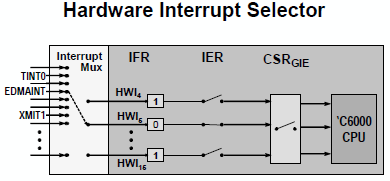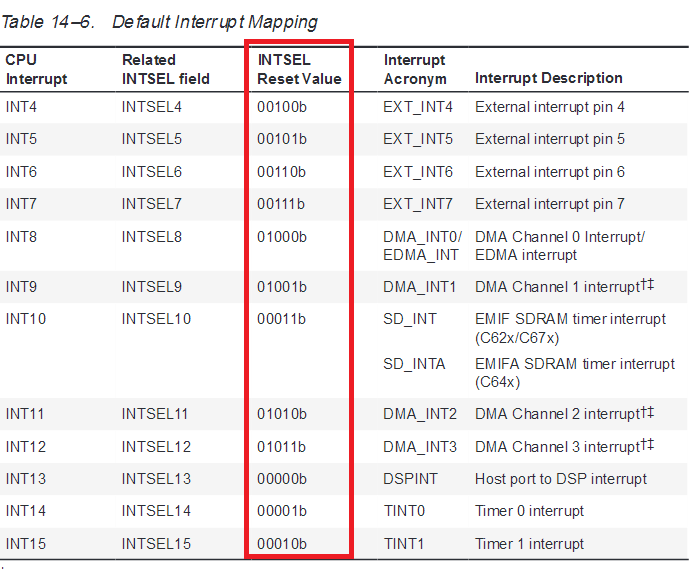Tool/software: TI C/C++ Compiler
Hi,
I am looking at c6000 (c6713 dsk) internal hardware and various peripheral. From c6713 workshop (Workshop), the 12 configurable interrupts are can be connected to various peripheral events by using MUXL and MUXH registers (spru190d, Figure 14-2). This is shown bellow:
The values of MUXL and MUXH are given bellow (spru190d, Table 14-6):
The figure above shows default events and their respective event Number. Suppose I want to connect I2C module (TX/RX event) to any of INT4-INT15 interrupt (SPRU175c). what value should i set to in MUX[X] registers?? I mean where are event Numbers for various peripherals are given? Where i can find other peripheral event numbers that can be mapped to CPU interrupts so that respective interrupt can reach CPU.
I don't want to use CSL Library. I know there are functions in CSL that can do that but I want to stick to baremetal programming.
Kind Regards,
Aimal.



